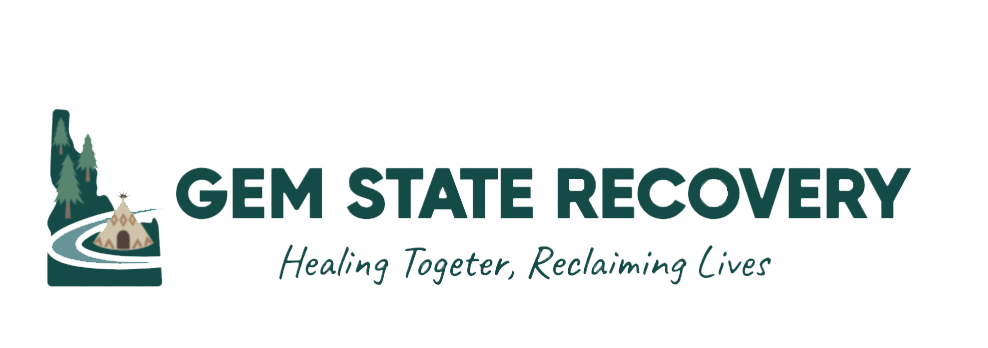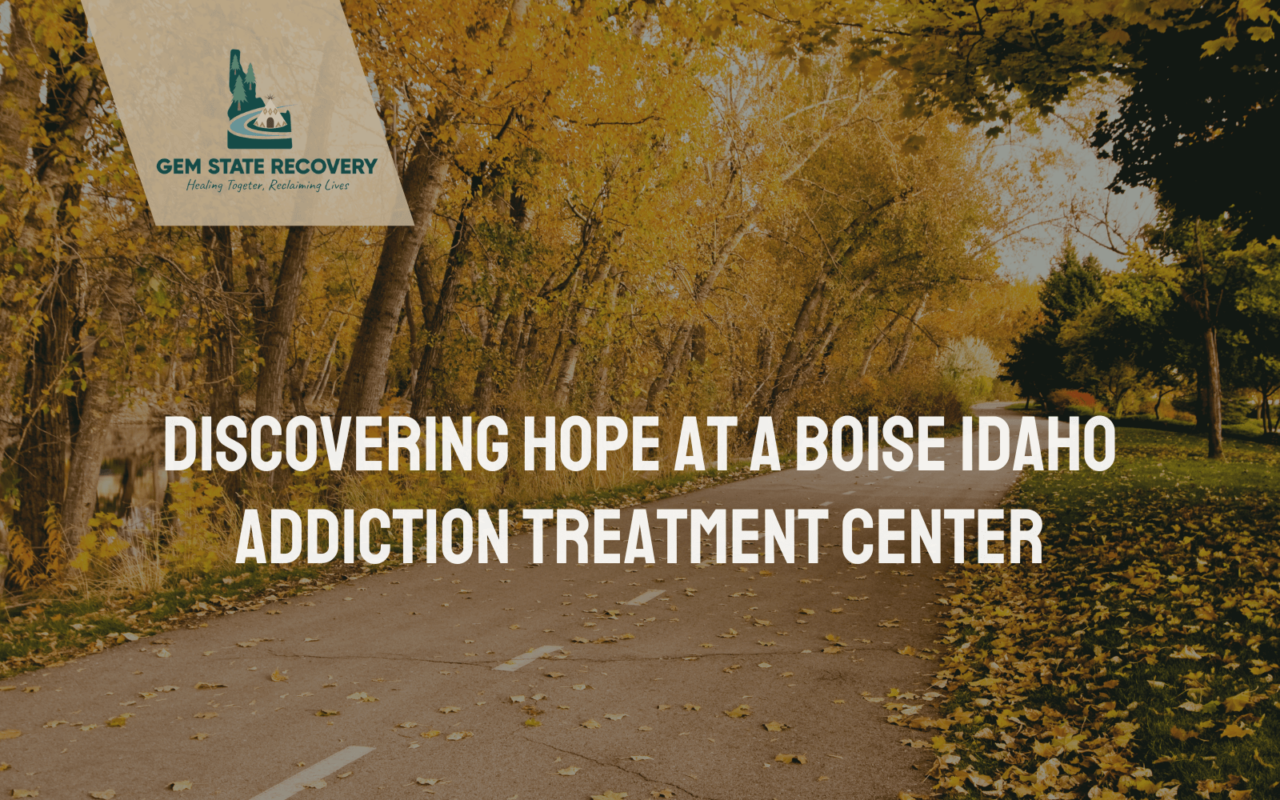Choosing a Boise Idaho rehab facility is a pivotal decision in your recovery journey. It is a choice that impacts not only your immediate treatment experience but your long-term health, relationships, and future goals. At Gem State Recovery, we understand how overwhelming this process can seem. That’s why we are committed to providing a clear, comprehensive guide to help you make the most informed decision possible.
With many options available in Boise and the surrounding Treasure Valley, it’s crucial to find a facility that matches your individual needs, offers evidence-based care, and fosters an environment where true healing can occur. This guide will walk you through every step of selecting the right Boise Idaho rehab facility so that you can approach your decision with confidence.
Understanding the Levels of Care Offered by Boise Idaho Rehab Facilities
Each individual’s needs in recovery are different, and effective treatment is tailored to the stage of healing they are in. The best Boise Idaho rehab facility will offer a continuum of care options designed to meet clients where they are.
Medical Detox
Detoxification is often the necessary first step for those entering recovery. It involves the supervised elimination of substances from the body and is crucial for managing withdrawal symptoms safely. In many cases, substances like alcohol, opioids, and benzodiazepines require medical oversight to prevent dangerous complications.
While not all Boise Idaho rehab facilities offer detox services onsite, many partner with reputable medical centers to ensure a seamless transition into structured treatment once detox is complete.
Typical features of residential care include:
- 24/7 clinical support
- Daily group and individual therapy
- Psychiatric care for co-occurring disorders
- Structured routines
- Nutritional support
- Recreational and holistic activities
A high-quality Boise Idaho rehab facility offering residential care will also emphasize relapse prevention and life skills training, preparing clients for life after treatment.
Partial Hospitalization Programs (PHP)
PHPs offer intensive therapeutic services similar to inpatient care but allow the client to live offsite. This level of care is ideal for individuals who have completed detox or residential treatment but still require a high degree of clinical oversight.
Key elements of a PHP include:
- 5–7 days per week of structured therapy
- Medication management
- Continued psychiatric evaluation
- Individualized care planning
- Crisis intervention if necessary
When selecting a Boise Idaho rehab facility, it’s important to assess whether their PHP is truly comprehensive or merely a less-structured outpatient option.
Intensive Outpatient Programs (IOP)
An IOP provides flexibility for individuals transitioning back to work, school, or family life. Clients attend therapy sessions several times per week while beginning to rebuild their independent lives.
Elements of a strong IOP include:
- Three to five sessions weekly
- Individual counseling
- Family therapy opportunities
- Skills groups focused on stress management, communication, and relapse prevention
A reputable Boise Idaho rehab facility will view IOP as a crucial step in reinforcing the progress made in higher levels of care.
Aftercare and Alumni Programs
True recovery extends far beyond formal treatment. Aftercare planning is vital for maintaining sobriety over the long term. Quality facilities offer alumni services such as:
- Sober living referrals
- Continued therapy sessions
- Employment assistance
- Peer mentorship programs
- Support group connections
Gem State Recovery provides robust aftercare coordination to ensure each client remains connected and supported after completing formal treatment.
Core Therapies You Should Expect at a Boise Idaho Rehab Facility
Effective rehab facilities in Boise prioritize evidence-based therapies — treatments proven through research to foster lasting recovery. A thorough program will integrate a variety of clinical modalities to address the unique needs of every client.
Cognitive Behavioral Therapy (CBT)
CBT helps clients identify distorted thought patterns and replace them with healthier ways of thinking. It’s particularly effective for treating substance use disorders and co-occurring conditions like depression and anxiety.
Dialectical Behavior Therapy (DBT)
DBT emphasizes emotional regulation, distress tolerance, interpersonal effectiveness, and mindfulness. Facilities offering DBT provide clients with critical tools for managing overwhelming emotions without returning to substance use.
Motivational Interviewing (MI)
MI strengthens a client’s internal motivation to change. Through collaborative conversations, therapists help clients resolve ambivalence about sobriety and reinforce their commitment to recovery.
Trauma-Informed Care
A high percentage of individuals with substance use disorders have experienced trauma. Trauma-informed care ensures that therapy recognizes the impact of trauma and avoids re-traumatization. This approach promotes a safer, more empowering environment for healing.
Medication-Assisted Treatment (MAT)
Some clients benefit from FDA-approved medications to manage cravings or co-occurring mental health conditions. MAT is carefully supervised and integrated into a broader therapeutic framework.
Any top-tier Boise Idaho rehab facility should offer or coordinate access to MAT when clinically appropriate.

Essential Amenities and Supports Beyond Therapy
While clinical care is the core of treatment, a welcoming environment and comprehensive support services are crucial to the overall experience. When evaluating a Boise Idaho rehab facility, consider whether they offer:
- Private or semi-private accommodations
- Nutritious, catered meals
- Fitness and recreational opportunities
- Access to outdoor spaces
- Transportation to offsite appointments
- Vocational training or education support
Holistic services such as yoga, meditation, art therapy, and nature outings can significantly enhance the healing experience.
Relapse Prevention as a Core Strategy
One of the primary goals of any Boise, Idaho, rehab facility should be teaching clients how to proactively manage the risks of relapse. Recovery is not just about completing treatment—it’s about equipping individuals with the tools they need to navigate life’s challenges while staying sober. Effective facilities go beyond basic education, offering structured relapse prevention planning designed to give clients a strong foundation for long-term success. This includes:
- Identifying personal relapse triggers: Clients learn to recognize the situations, emotions, or environments that might lead them back to substance use. By understanding these triggers, they can create strategies to avoid or manage them.
- Building a crisis plan: A solid, actionable plan ensures clients know exactly what to do and who to reach out to if they find themselves struggling or at risk of relapse.
- Strengthening coping strategies: Facilities teach healthy ways to handle stress, cravings, and emotional challenges, ensuring clients are prepared for the ups and downs of daily life.
- Establishing a sober support network: Whether it’s through support groups, family involvement, or trusted friends, having a reliable network is essential for staying accountable and supported.
- Setting realistic, achievable post-treatment goals: By focusing on small, attainable milestones, clients can maintain motivation and build confidence in their ability to stay sober.
When comprehensive relapse prevention planning is prioritized, clients are empowered to maintain their recovery even during life’s most difficult moments, giving them the tools to build a healthier, more fulfilling future.
Financial Considerations: Insurance, Costs, and Accessibility
Cost should never be a barrier to life-saving treatment. When evaluating a Boise Idaho rehab facility, it is important to understand all financial options available.
Many facilities accept:
- Private insurance (PPO, HMO)
- Medicaid or state-funded insurance
- Sliding scale payment plans
- Scholarships or grants for those in need
The admissions team should assist with:
- Insurance verification
- Preauthorization (if required)
- Out-of-pocket cost estimates
- Payment arrangements
Gem State Recovery prides itself on making recovery accessible, offering clear, upfront communication about all financial matters.
Community Resources to Enhance Recovery in Boise
Boise offers a rich network of recovery-friendly resources that can supplement formal treatment.
- 12-Step Programs: Alcoholics Anonymous (AA), Narcotics Anonymous (NA), and other groups meet regularly throughout the Treasure Valley.
- SMART Recovery: An alternative support model focused on self-management and recovery training.
- Sober Living Homes: Transitional living options where individuals can practice sobriety in a structured, drug-free environment.
- Employment Services: Organizations like Create Common Good offer job training for those in recovery.
- Higher Education: Boise State University offers programs like Recovery on Campus (ROC) to support students maintaining sobriety while pursuing degrees.
A knowledgeable Boise Idaho rehab facility will actively connect clients to these and other local resources.
Step-by-Step Checklist for Choosing a Boise Idaho Rehab Facility
Use the following detailed checklist to systematically evaluate potential facilities and ensure you’re making the best choice for your needs:
-
Verify Licensing and Accreditation
Confirm the facility is properly licensed and accredited by reputable organizations like the Joint Commission or CARF. These endorsements ensure the facility follows high standards of care and ethical practices.
-
Review Clinical Staff Credentials
Check the qualifications of the clinical team, including masters-level therapists, licensed addiction counselors, psychiatrists, and any other specialists who may be involved in your treatment. Their expertise is essential for providing high-quality care.
-
Confirm Available Levels of Care
Determine whether the facility offers the levels of care you need, such as detox, residential treatment, partial hospitalization, outpatient care, or intensive outpatient programs. Make sure their services align with your specific requirements.
-
Evaluate Therapy Options
Look into the types of evidence-based therapies offered, such as CBT (Cognitive Behavioral Therapy), DBT (Dialectical Behavior Therapy), trauma-informed care, or MAT (Medication-Assisted Treatment). A diverse range of therapies often leads to more personalized and effective care.
-
Assess Facility Environment
Take note of the facility’s overall environment. Is it clean, safe, and comfortable? A positive, supportive setting can make a significant difference in your recovery experience.
-
Discuss Relapse Prevention Programs
Ask about the facility’s strategies for relapse prevention. Programs that teach coping skills, self-awareness, and provide ongoing support are crucial for maintaining long-term sobriety.
-
Understand Aftercare and Alumni Services
Recovery doesn’t end when the program does. Find out what aftercare resources and alumni services the facility offers, such as support groups, mentorship programs, or continued therapy to help sustain your progress after leaving.
-
Clarify Financial Obligations and Insurance Acceptance
Ensure you understand the full financial picture, including treatment costs, payment plans, and whether the facility accepts your insurance. This can help avoid unexpected expenses down the line.
-
Tour the Facility
Whenever possible, visit the facility in person to get a feel for its atmosphere. If an in-person visit isn’t feasible, request a virtual tour to explore the space and ask questions in real-time.
-
Ask for Outcomes Data
Request information about the facility’s success rates, such as graduation rates or long-term recovery statistics. Hearing success stories from former clients can give you confidence in their ability to help.
Choosing the right Boise, Idaho rehab facility is too important to leave to chance. Take your time, do your homework, ask tough questions, and trust your instincts to find the best fit for your recovery journey.
What Sets Gem State Recovery Apart
At Gem State Recovery, we have designed our programs to meet the highest standards of clinical excellence while offering a compassionate, welcoming environment. Our core values include:
- Individualized Care: No two people experience addiction the same way, so we believe no two recovery journeys should be identical either. Our team works closely with each client to create personalized treatment plans that address their unique challenges, goals, and needs.
- Evidence-Based Practices: We rely on therapies and approaches that are proven by science to deliver the best possible outcomes. From cognitive-behavioral therapy to mindfulness techniques, our methods are carefully chosen to support lasting recovery.
- Community Integration: Recovery isn’t just about overcoming addiction—it’s about building a fulfilling life. We help clients connect with resources, activities, and opportunities within the vibrant Boise community, fostering a sense of belonging and purpose.
- Commitment to Long-Term Success: Recovery doesn’t end at the door. From the very first day of treatment to years after graduation, we remain invested in each client’s journey, offering ongoing support and resources to ensure they thrive in their new lives.
Choosing a Boise Idaho rehab facility is ultimately about finding the place where you feel seen, heard, and supported. At Gem State Recovery, we are honored to be that place for so many individuals — and we are ready to help you, too.
Take the First Step with Gem State Recovery
Recovery is not a destination; it is a journey — one that begins with a single, courageous decision. If you are ready to begin a new chapter free from the burdens of addiction, let Gem State Recovery be your guide.
Our admissions specialists are available to answer your questions, verify your insurance, and help you find the program that’s right for you. Your new life is waiting — and it starts with a call.
Contact Gem State Recovery today to learn more about how we can help you find lasting freedom and fulfillment. For more information, visit our website https://gemstaterecovery.com/ or call us at (208) 314-3107.





